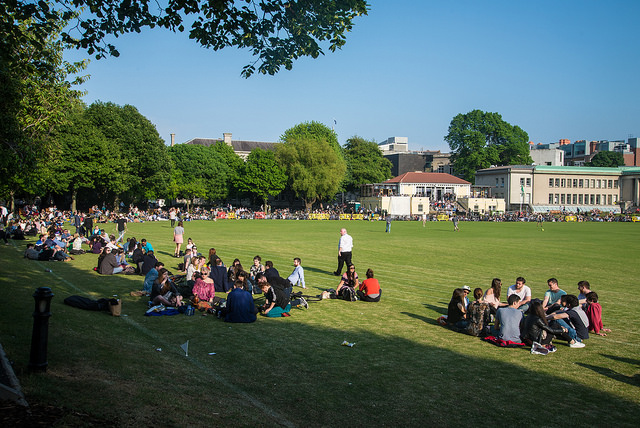Trinity’s Pavilion Bar is currently exploring social distancing measures as a result of the coronavirus, but has not set a definitive date for when it will re-open, according to its chairperson.
Ireland’s pubs have been closed for almost two months now, with plans for their opening under discussion amid debate over whether they can return to business before August 10th if social distancing protocols are in place.
Pav Chair Cyril Smyth wrote in an email to The University Times that the bar is “already thinking through issues that will be involved such as the social distancing in the new ‘normal’ and how this can be managed”.
“Let there be no doubt that DUCAC [Dublin University Central Athletic Club] and I wish the Pavilion Bar to reopen as soon as we get a green light”, he said.
But Smyth added that a “lot of things could happen between now and then – an acceleration of the phases if things go well, a rescheduling of phases, or God forbid a second wave of Covid 19 infection”.
“There remains a further, at this point unknown, factor as to what conditions the College may set”, he wrote, adding that the lifting of restrictions “is contingent on a lot of factors going well in the five phases outlined”.
DUCAC, the body in charge of Trinity’s sports clubs, receives a large portion of its income from the profits of the Pav.
Under the current government plan, pubs and nightclubs are not due to reopen until August 10th, though cafes and restaurants will be allowed to reopen from June 29th.
According to the Irish Times, senior government figures have indicated that pubs may be allowed to open earlier than August 10th if they can demonstrate an ability to enforce “rigid social distancing measures”.
Trinity has been shut since March 12th, with teaching moved online and exams – which are currently ongoing – taking place remotely.
Most residents of Trinity’s accommodation have moved out, after College instructed them to leave with less than 48 hours’ notice in March.
The move prompted widespread backlash, particularly from international students – some of whom, this newspaper reported, felt they been left with “nowhere to go” as a result of the decision.







